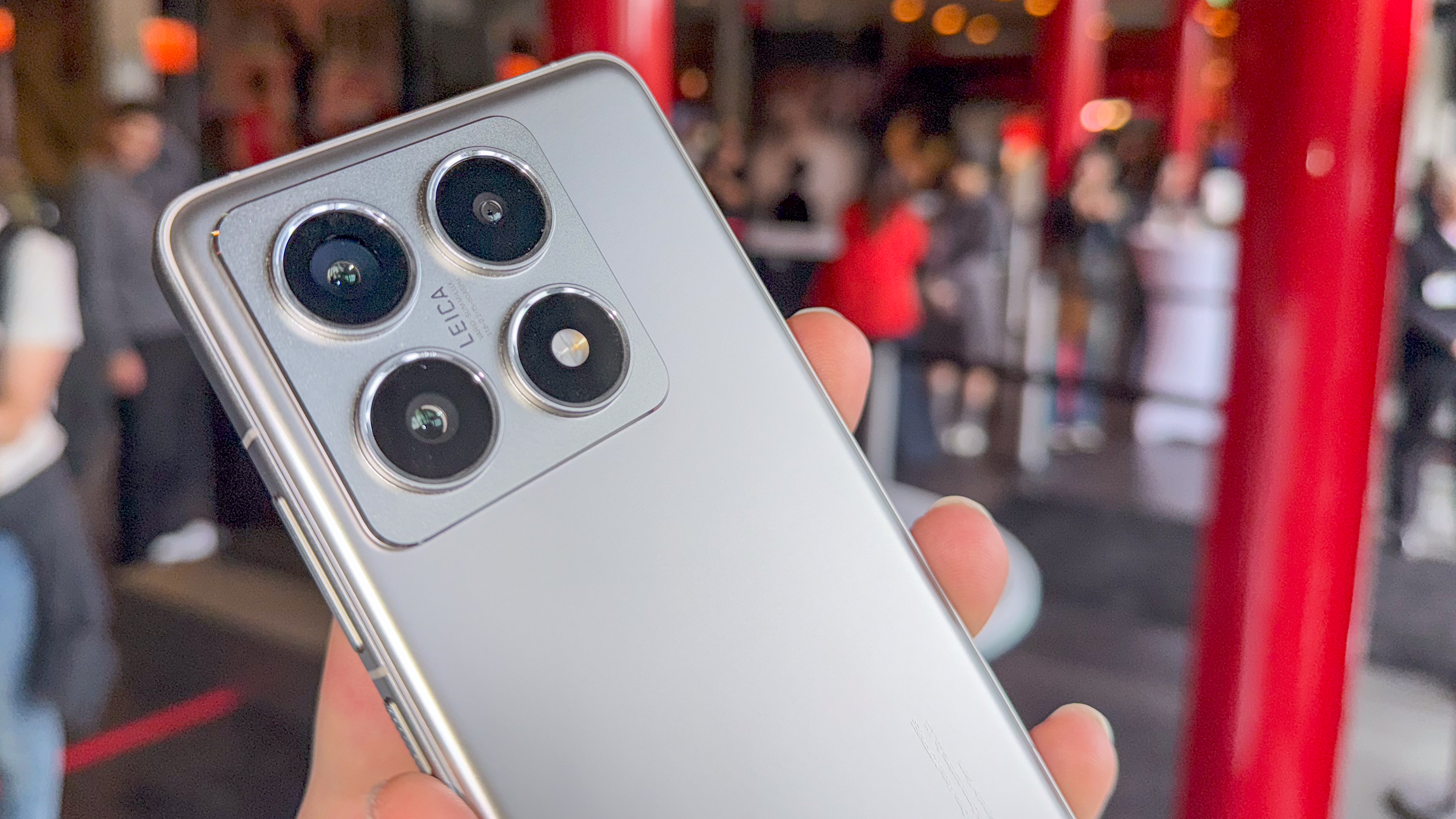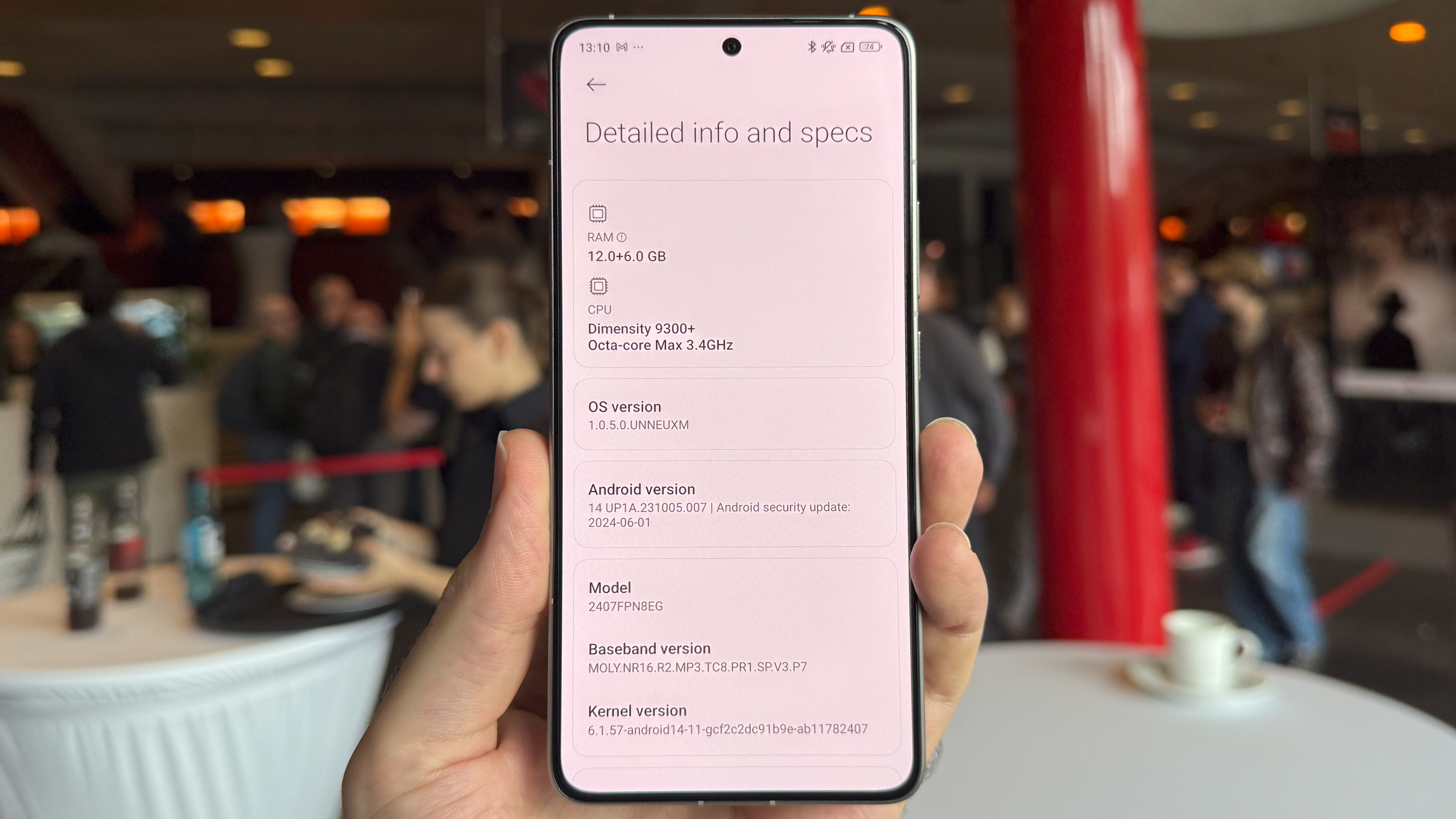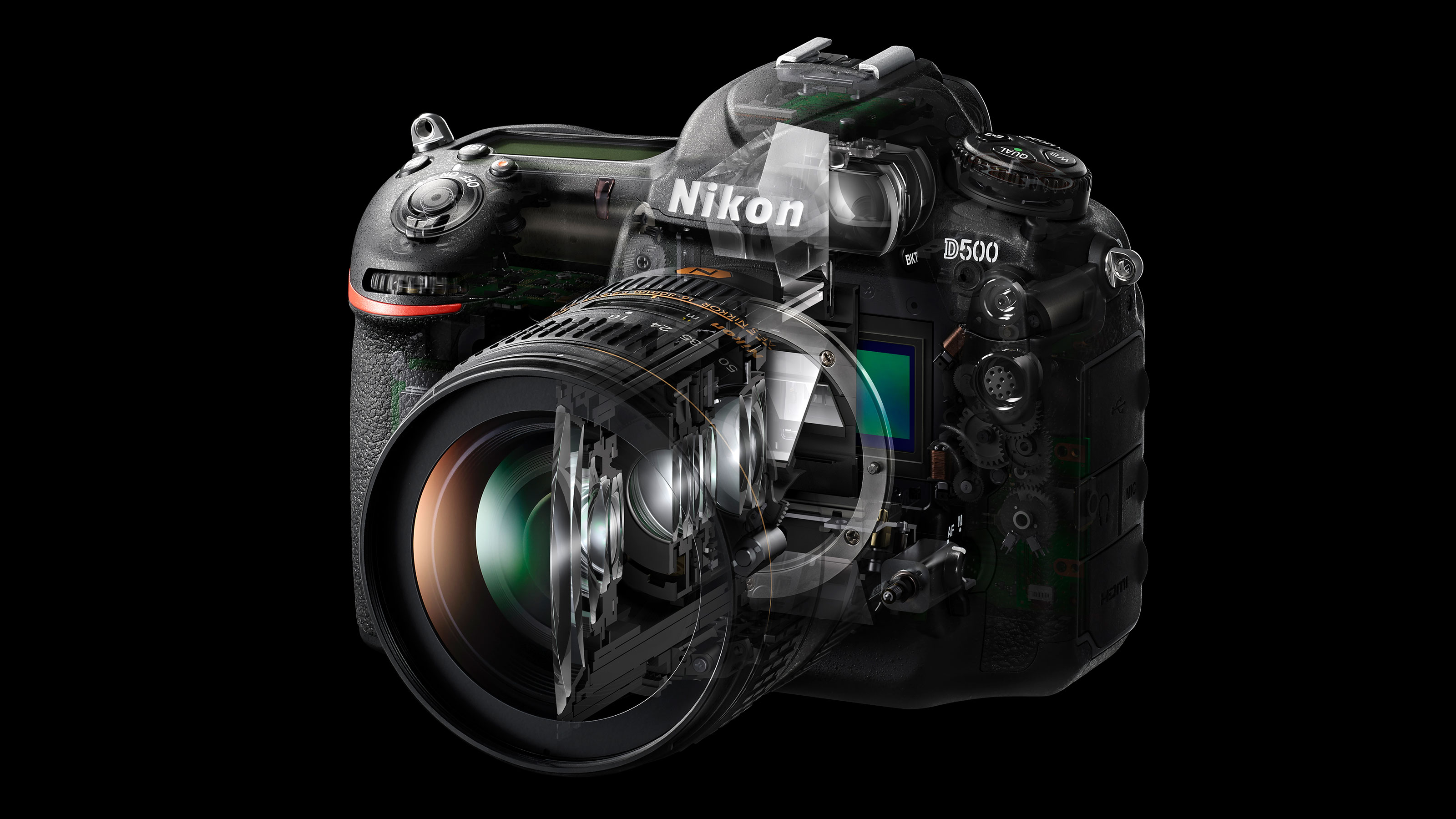Xiaomi 14T Pro arrives with Leica Summilux lens and flagship-grade fast charging
Xiaomi delivers Leica-tuning for less with the 14T and 14T Pro, plus the Mix Flip foldable flagship gets a Western launch
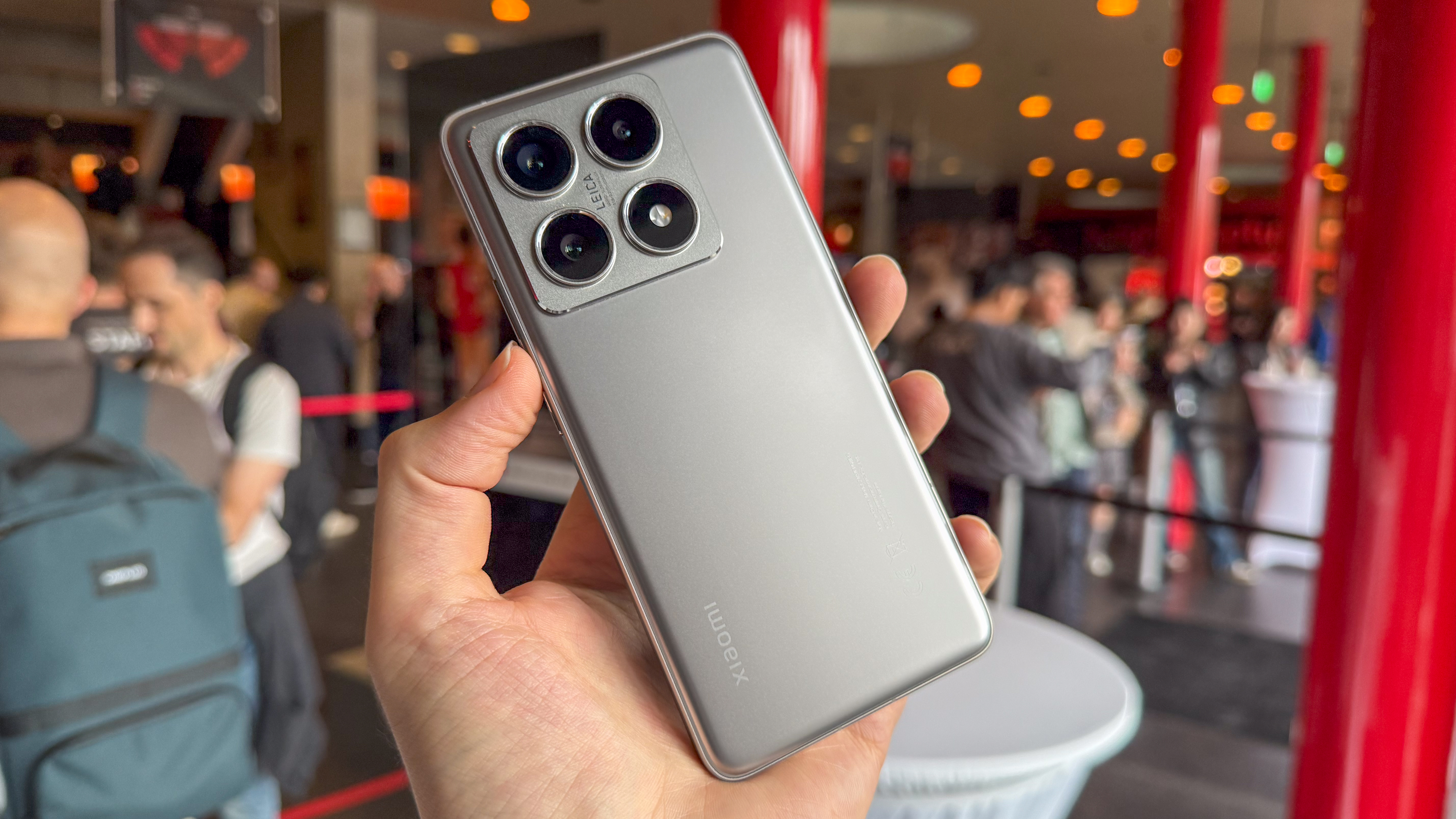
The best camera deals, reviews, product advice, and unmissable photography news, direct to your inbox!
You are now subscribed
Your newsletter sign-up was successful
Xiaomi has announced two new Leica-co-branded phones, the Xiaomi 14T and 14T Pro, and it’s bringing its Xiaomi Mix Flip to global markets, including Europe and the UK.
Starting with the new 14T Series, the phones are direct follow-ups to the powerful Xiaomi 13T and 13T Pro. Both phones were the first to bring Xiaomi's Leica partnership to a sub-flagship price point, and the 14T series builds on the same formula. The Xiaomi 14T Pro, in particular, looks especially impressive, with its large primary camera sensor, metal and glass styling, IP68 dust and water resistance and the inclusion of wireless charging, a first for the line.
Both the Xiaomi 14T and 14T Pro enjoy Leica tuning, but unlike their predecessors, the 14T's camera hardware is slightly different from that of the Pro, as are the styling, power spec, and other elements.
As for the Xiaomi Mix Flip, which was announced for China earlier in the year, its specs remain unchanged for its global debut, with the camera setup combining a telephoto and primary camera mix that bests that of the Motorola Razr 50 Ultra on paper.
What's the difference between the Xiaomi 14T and 14T Pro Cameras?
The Xiaomi 14T and 14T Pro look set to have the same ultra-wide and selfie cameras but different primary and telephoto cameras, with the 14T Pro getting a larger primary sensor and a further-reaching optical zoom.
Starting with the primary cameras, both the 14T and 14T Pro sport 50MP resolutions and lenses with OIS, but the Xiaomi 14T Pro's main camera has a LYT 900 sensor made by OmniVision. With a near-iPhone 16 Pro 1/1.31-inch size combined with an f/1.6 lens and a dual-native ISO, Xiaomi claims it offers up to 13.57 stops of dynamic range.
Meanwhile, the Xiaomi 14T uses a Sony IMX 906 primary sensor measuring 1/1.56-inch matched with a slightly slower f/1.7 aperture lens.
The best camera deals, reviews, product advice, and unmissable photography news, direct to your inbox!
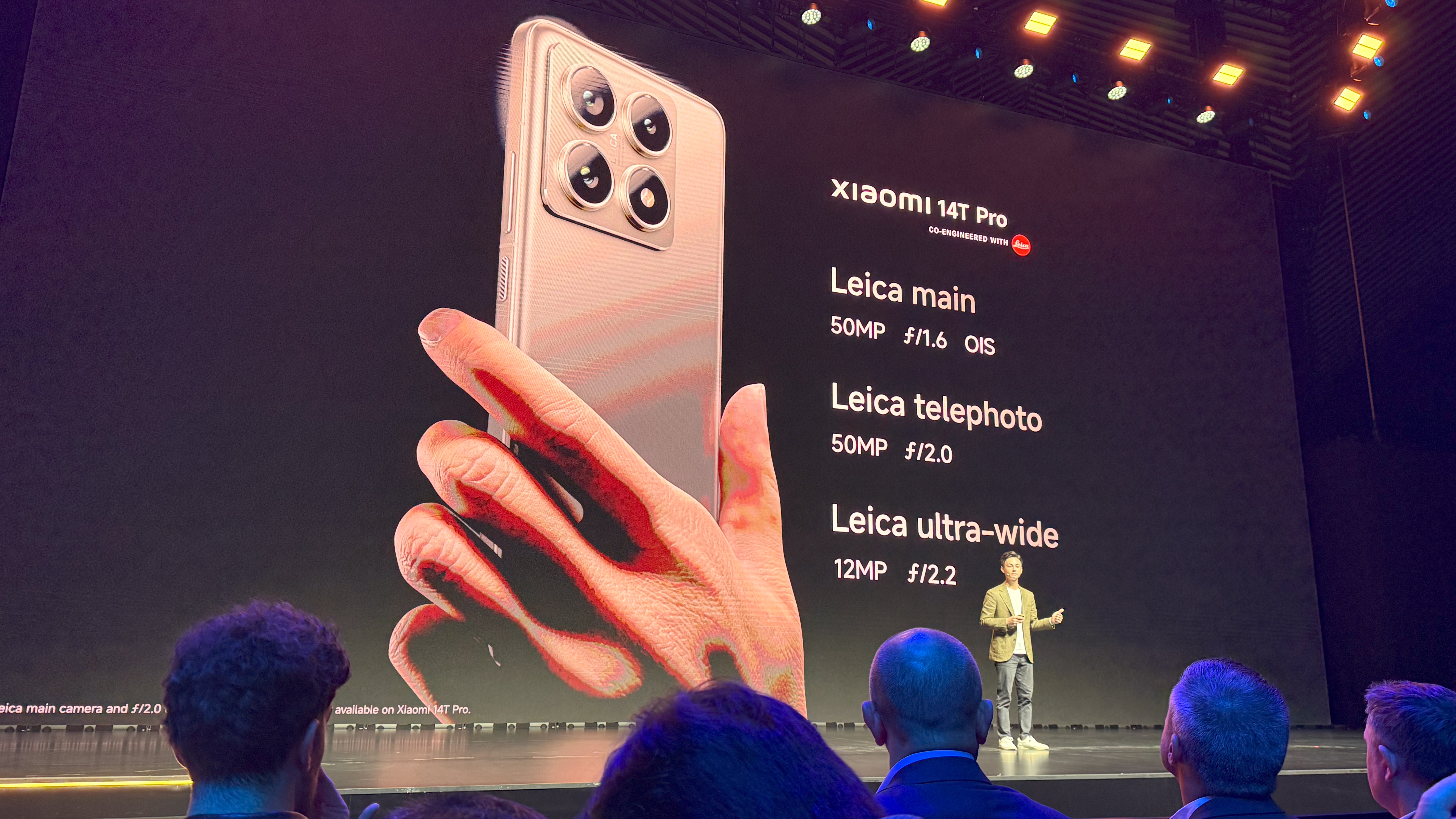
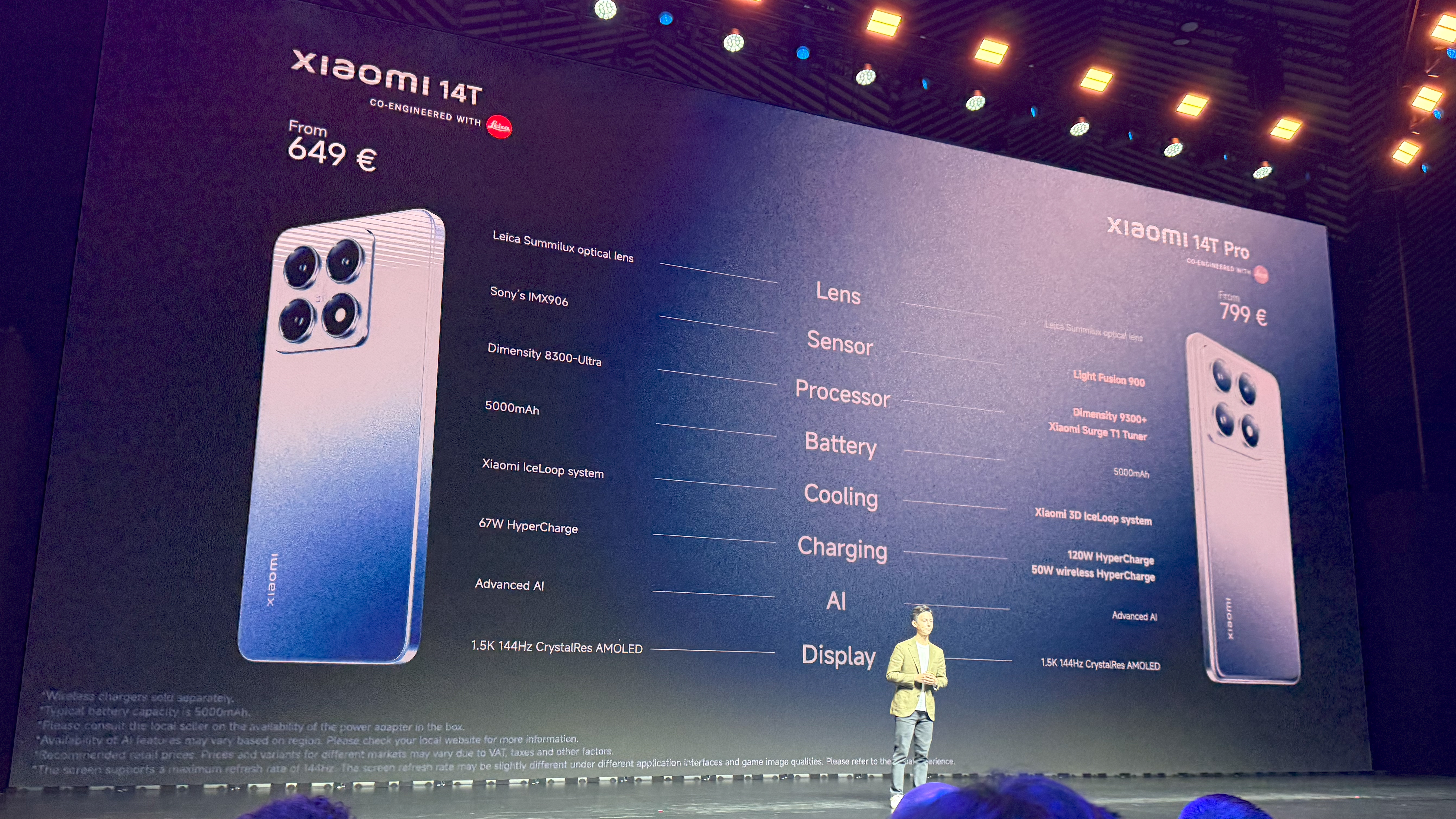
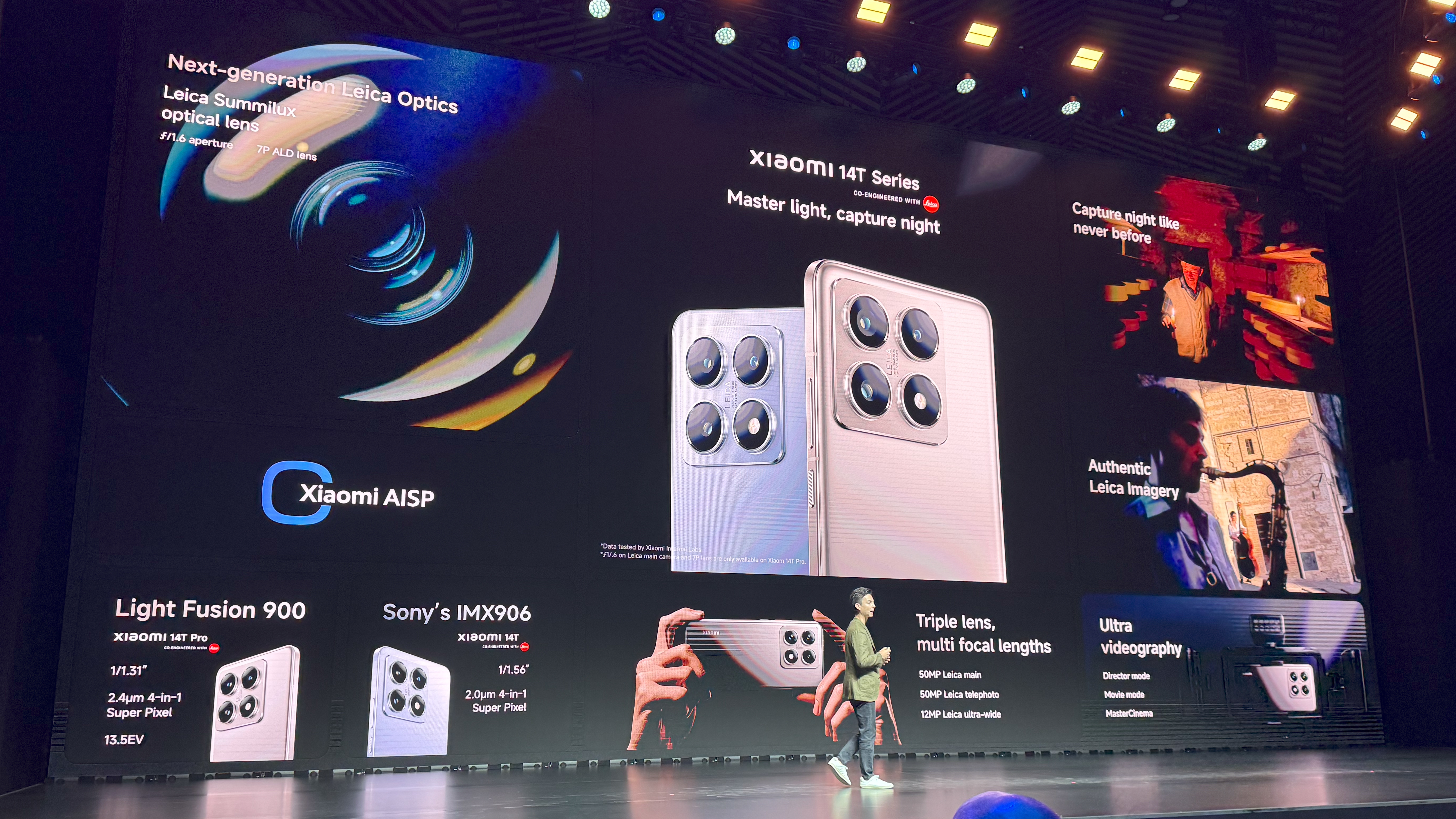
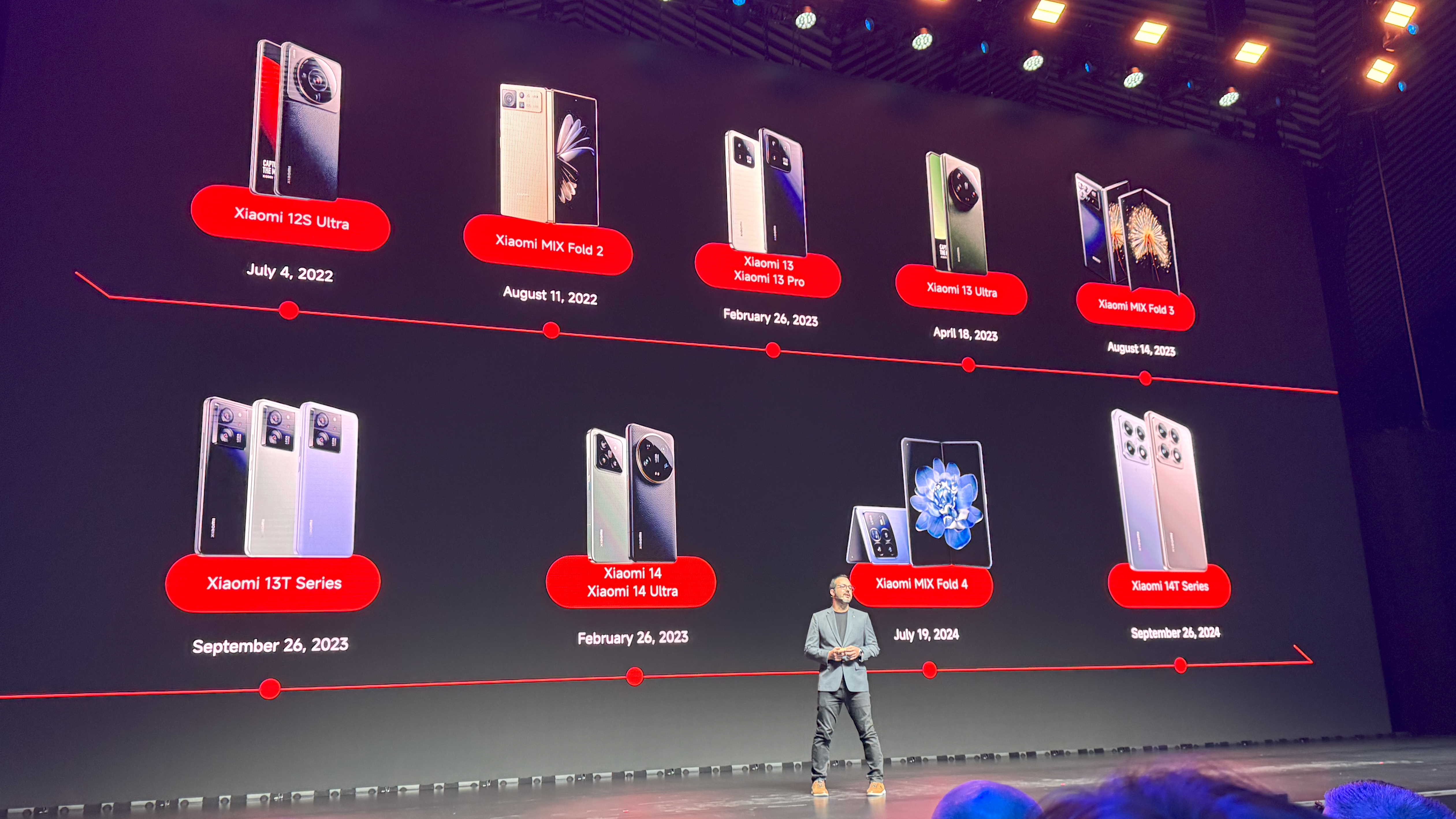
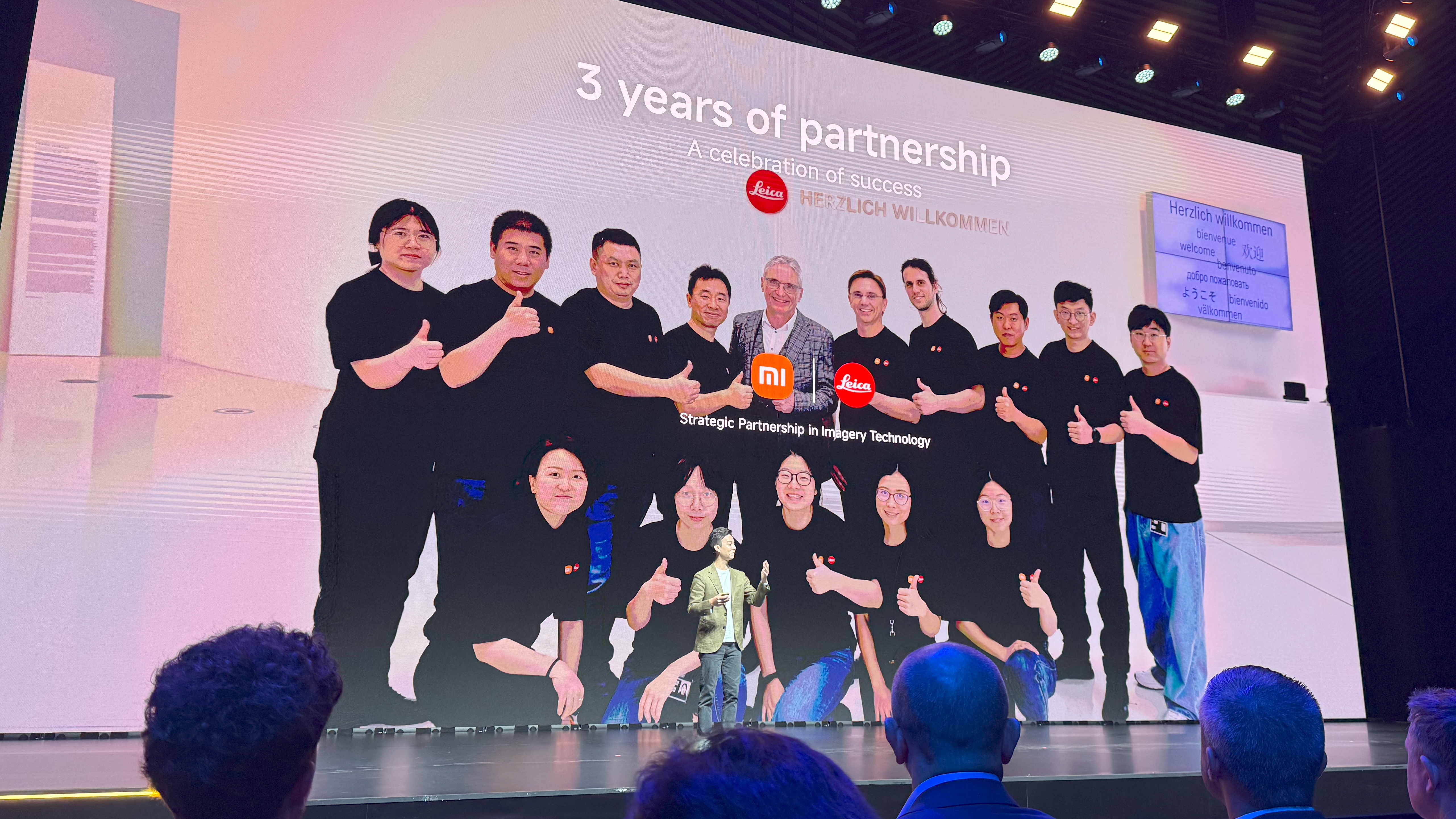
As for the telephoto cameras, the Xiaomi 14T and 14T Pro both have 50MP sensors and neither camera's lens has optical image stabilization, a highlight that seems to be reserved for flagship tele cameras. Getting into specifics and the 14T Pro's further-reaching optical lens is 60mm with an f/2.0 aperture, while the 14T's 50mm lens is f/1.9.
As for the ultra-wide camera, the 14T and 14T Pro both drop the pixel count to 12MP while also missing out on autofocus for a much more midrange offering.
Both phones benefit from faster night photography capturing 1.58x faster than the 13T series. Specifically, this aims to bring down the waiting time when your phone's long-exposure auto night mode fires up.
When it comes to Xiaomi's Leica-branded cameras, hardware is only half the story, with the software enhancements and classical photography style being an overriding part of the camera phone experience. When reviewing past Xiaomi phones, this has been both a blessing and a curse, holding back more midrange devices like the 13T and 13T Pro by applying too much contrast and limiting dynamic range. On the other hand, it also produces results that look sumptuous and rich across all cameras on the flagship Xiaomi 14 Ultra.
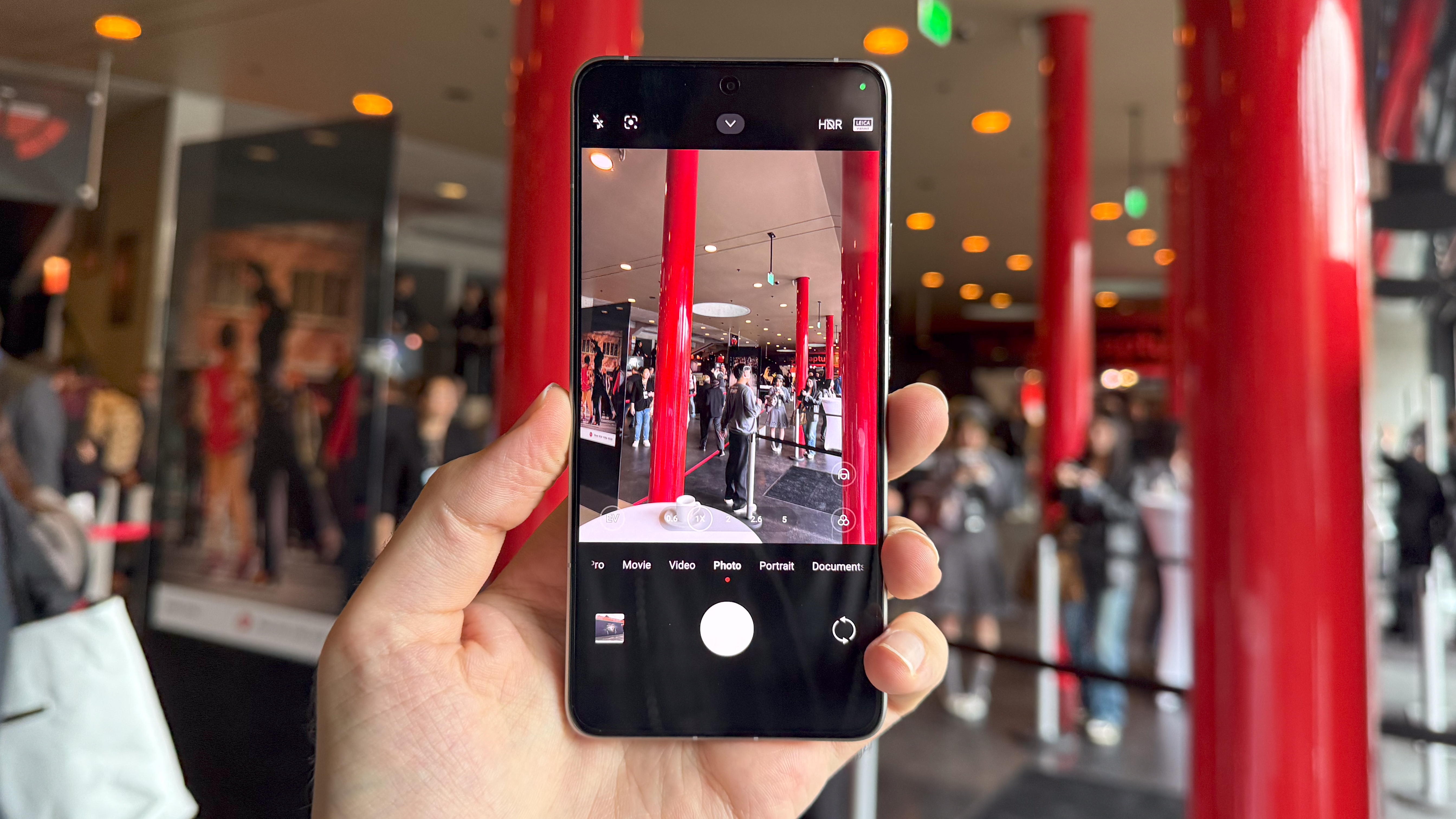
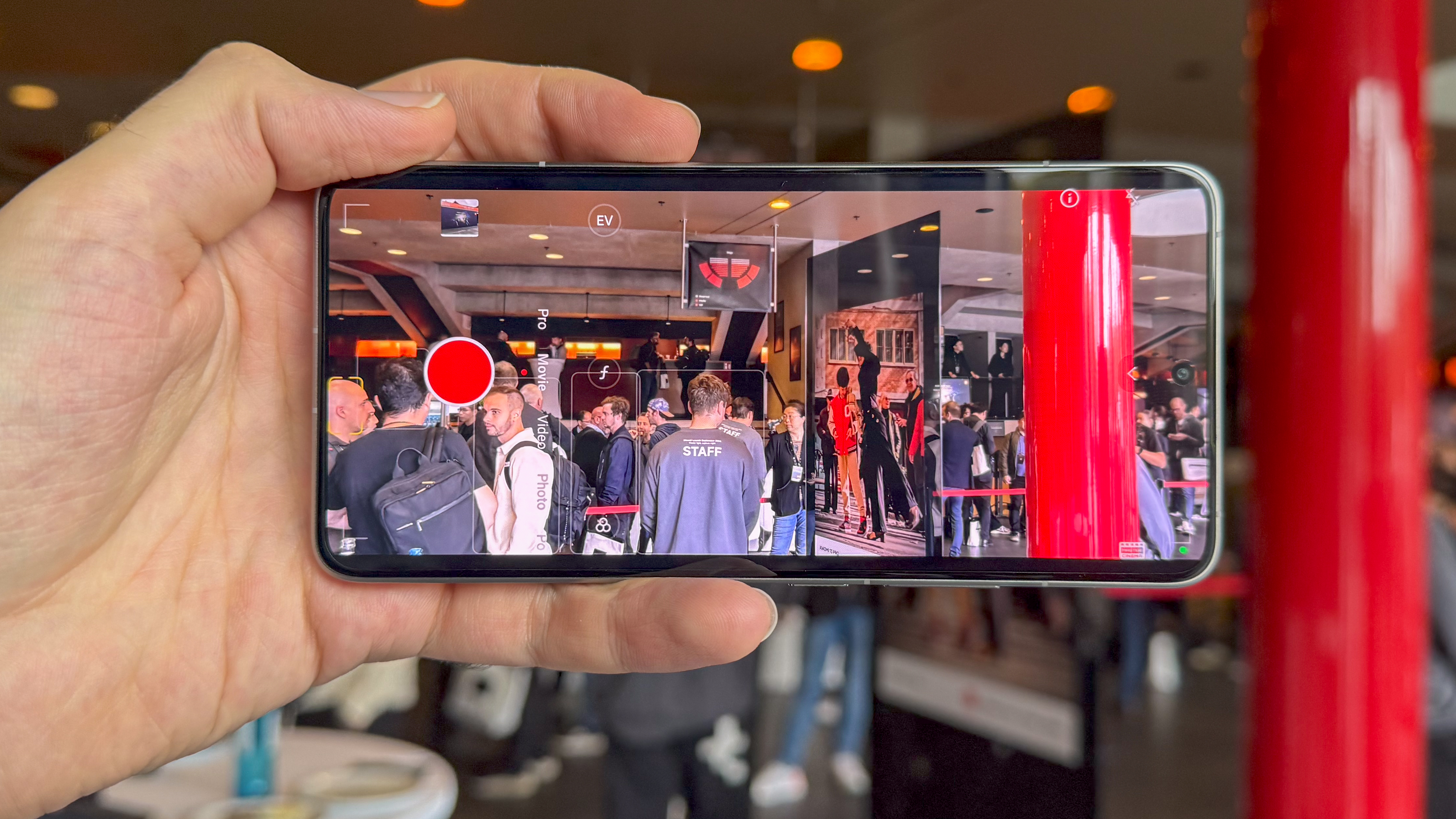
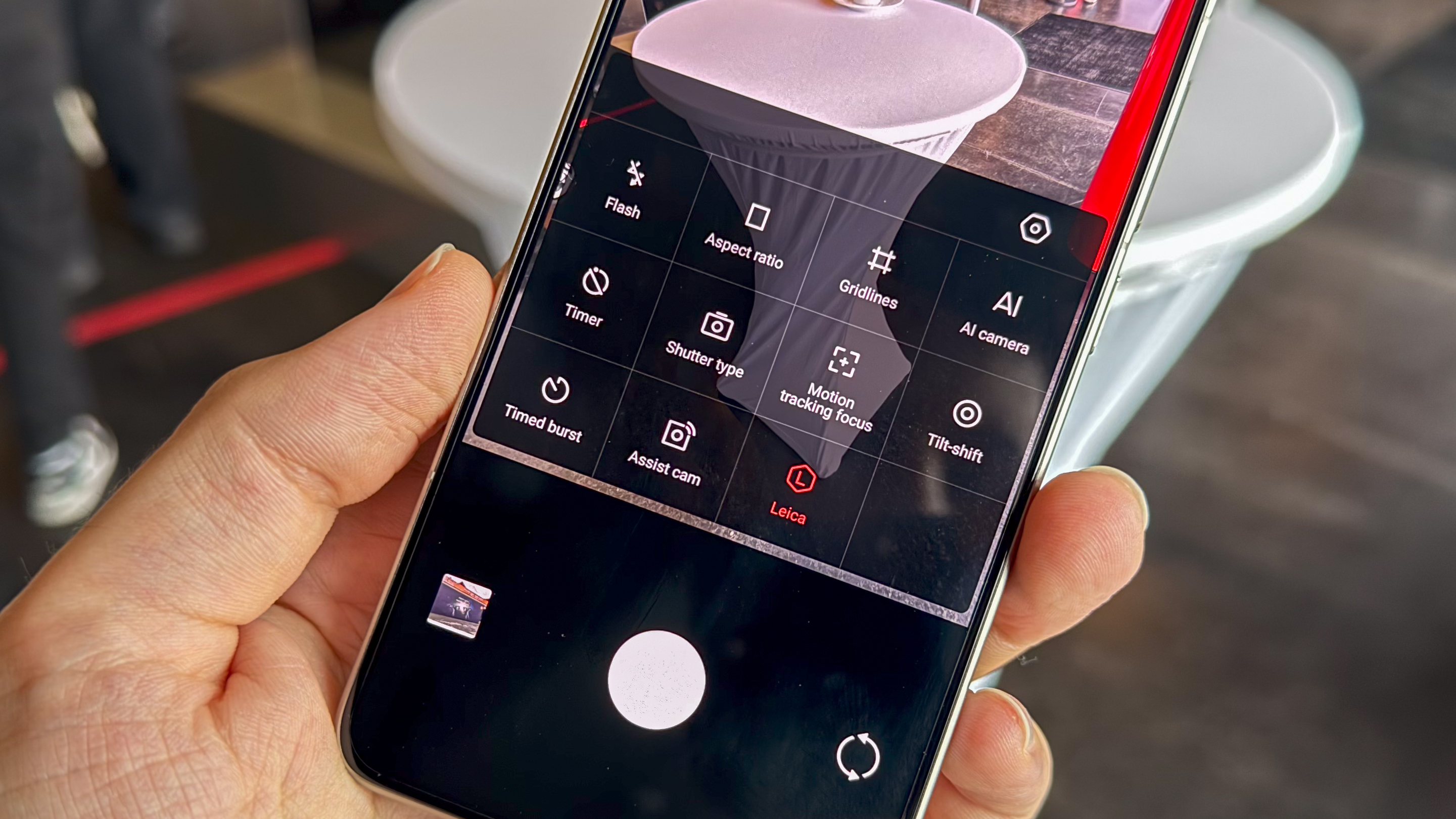
Xiaomi Leica camera features
Fire up the 14T or 14T Pro and you're presented with two shooting options, Leica Authentic and Leica Vibrant, with both styles loaded up with contrast and a more traditional photographic look than pictures taken on Pixels and iPhones.
By combining optical reach with in-sensor cropping, Xiaomi's Leica Portrait mode also adds new digital lenses to the experience, with each tuned to emulate a Leica Lens background blur look.
Leica's watermark is also a superficial, but handy feature that's characterised Xiaomi's higher-end phones, displaying shooting parameters as well as a Leica logo in a non-destructive, white bar below your photo.
We've also been fans of Xiaomi's Pro mode for a couple of generations, with support for 50MP RAW photos, an on-screen histogram, focus-peaking and zebra line exposure verification all available on the 14T Pro.
It's also worth touching on video capture, with Xiaomi's primary camera's supporting LOG capture at up to 4K resolution, 24 or 30fps, and on-device LUTs, with Rec.709 pre-loaded, and CUBE files supported for installing new LUTs. Considering these aren't flagship camera phones, it's hard not to be impressed by the 14T and 14T Pro off the bat.
Xiaomi 14T & 14T Pro additional features
The Xiaomi 14T and 14T Pro are more than just Leica-tuned camera phones, with both packing capable MediaTek chipsets, IP68 dust and water resistance, plenty of memory and nippy charging. The displays also showcase 1.5K resolution for a crisp picture, and a silky smooth 144Hz panel and zingy OLED screen technology. The phones are also loaded with a raft of AI features like transcription and translation tools, object removal and more.
Xiaomi's 14T Pro is the mightier of the two, with a premium MediaTek 9300+ chipset for superior gaming performance. Its metal frame and curved glass back that rounds into all four sides also creates a softer and more premium in-hand feel. The 14T Pro also gets faster wired charging at 120W for a full charge in around 20 minutes. More notably, it also has super-fast 50W wireless charging, seldom seen at the phone's price.
The Xiaomi 14T, by contrast, pares things back with a MediaTek 8300 Ultra chipset. Its plastic frame and flat glass back feels a bit boxier and the 14T Pro's charging caps out at 67W, missing out on wired charging.
As for pricing and availability, the Xiaomi 14T is available to buy now and costs £549 (roughly $735) in the UK with 256GB storage. If you're eying up the Xiaomi 14T Pro, it costs £649 (roughly $870) – a seriously competitive price considering its spec – while the Xiaomi Mix Flip is significantly pricier at £1,099, putting it in the premium category alongside the best flip phones currently available.
Basil Kronfli is a freelance technology journalist, consultant, and content creator. He trained in graphic design and started his career at Canon Europe before moving into journalism. Basil is also experienced in video production, independently running the YouTube channel TechEdit, and during his time at Future, he worked alongside the Digital Camera World team as a senior video producer.
